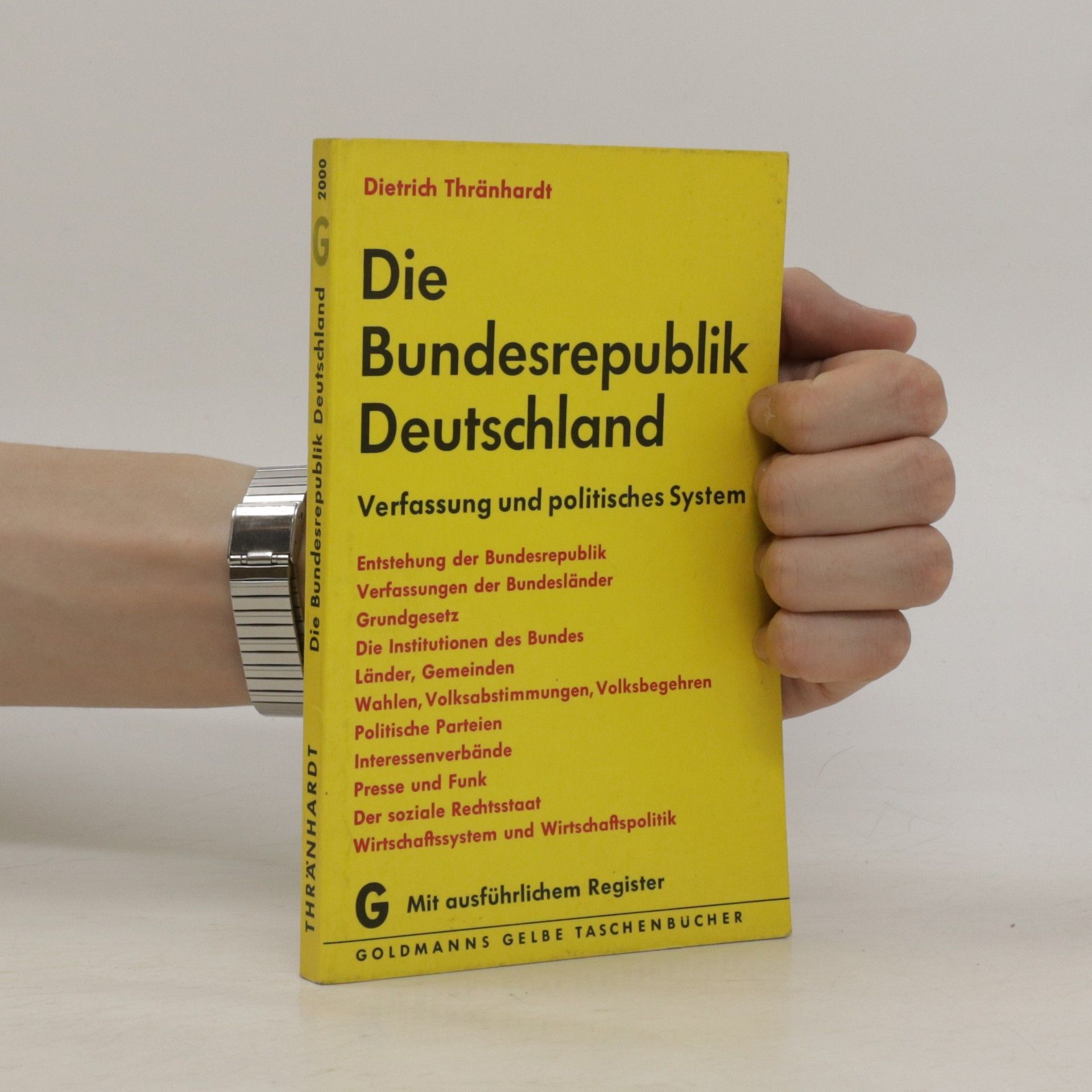Integration und Teilhabe sind programmatische Schlagwörter in der aktuellen gesellschaftlichen Debatte und politischen Diskussion. Integration und Teilhabe zielen dabei nicht nur auf Flüchtlinge oder Migranten; sie betreffen alle gesellschaftlichen Gruppen. Der Band erörtert Integration als modernes Politikfeld, indem er zeigt, wie wirtschaftliche, politische und soziale Integration abläuft und gesteuert werden kann. Vor dem Hintergrund der gegenwärtig diskutierten Modelle entsteht ein umfassendes, leicht nachvollziebares Bild der Integration und Teilhabe, die in Zukunft zunehmend Aufgabe politischer und gesellschaftlicher Gestaltung werden.
Dietrich Thränhardt Book order (chronological)



Geschichte der Bundesrepublik Deutschland
- 271 pages
- 10 hours of reading
Die Geschichte der Bundesrepublik bis zur unmittelbaren Gegenwart wird im vorliegenden Band anhand dreier Problemkreise nachgezeichnet. Zum einen auf der Ebene der Außenpolitik: Hier fand die Einbettung in das westliche Bündnis statt, die Hinnahme der Teilung Deutschlands, in den siebziger Jahren der Versuch der Entspannung mit dem Osten. Wirtschaftspolitisch ging der Weg vom »Wirtschaftswunder« und Wachstumsglauben zur ökonomisch-ökologischen Orientierungskrise, gesellschaftlich vom Streben nach Sicherheit zum Machbarkeitsdenken und schließlich zur Betonung neuer immaterieller Werte. Kulturell hatte sich der Wandel schon seit den sechziger Jahren im Durchbruch kritischer Tendenzen in Literatur und Kunst gezeigt. Nach dem eher autoritären Beginn ist die Demokratie inzwischen in Deutschland ähnlich verankert wie in anderen westlichen Ländern, einschließlich ihrer radikal-utopischen Spielart. (Quelle: [Suhrkamp Verlag](https://www.suhrkamp.de/buch/dietrich-thraenhardt-geschichte-der-bundesrepublik-deutschland-t-9783518112670))